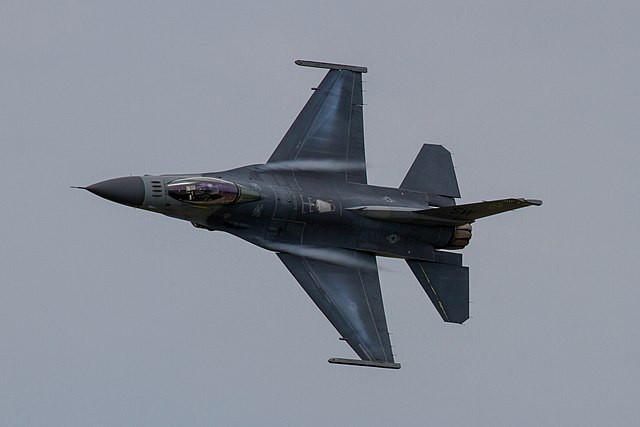In a sobering development for Ukraine's air defense efforts, one of the F-16 fighter jets recently supplied by Western allies has crashed, resulting in the death of its pilot. The Ukrainian Army General Staff confirmed on Thursday that the incident occurred on Monday amidst a major Russian missile and drone attack. The pilot, Colonel Alexei "Moonfish" Mes, was identified as a hero who "saved Ukrainians from deadly Russian missiles, unfortunately, at the cost of your own life," according to a Facebook post by the Ukrainian Air Force.
The crash marks the first reported loss of an F-16 in Ukraine since the arrival of the aircraft at the end of July. At least six of these warplanes have been delivered to Ukraine as part of Western support efforts. The Defense Ministry has initiated an investigation into the incident to determine the cause of the crash.
The F-16s, which arrived as part of a broader military aid package from NATO countries including Belgium, Denmark, the Netherlands, and Norway, were intended to bolster Ukraine's air capabilities against the superior Russian air force. Despite the arrival of these advanced aircraft, analysts had noted that their impact might be limited due to Russia's extensive air defense systems and larger fleet. Ukrainian officials had expressed optimism that the F-16s would provide a crucial edge in the ongoing conflict, but the recent crash underscores the perilous nature of the air war.
The timing of the crash coincided with a heavy aerial assault by Russia, marking the third major attack in just four days. Russian forces launched five missiles and 74 Shahed drones at Ukrainian targets, with Ukraine's air defenses intercepting two missiles and 60 drones. The remaining drones fell short of their targets, causing only minor damage to civilian infrastructure in Kyiv.
The loss of Col. Mes is particularly poignant given his and fellow pilot Andrii "Juice" Pilshchykov's high-profile advocacy for Western support. Both pilots had visited the U.S. in June 2022 to appeal for F-16s, becoming symbols of Ukraine's determination to defend its airspace. Pilshchykov had tragically died in an accident in August 2023, and Mes's death represents another significant personal loss in the fight against Russian aggression.
The Ukrainian Air Force's reliance on Soviet-era warplanes until now has been a significant disadvantage. The introduction of F-16s, which can fly at twice the speed of sound and have a range of over 2,000 miles, was expected to enhance Ukraine's capabilities. However, with Russia's air power still substantially larger and more advanced, the F-16s are not expected to completely alter the strategic balance.
The arrival of these jets follows a long period of negotiation and internal debate within the U.S. administration. President Joe Biden's authorization in August 2023 to send F-16s to Ukraine came after considerable pressure from Kyiv and concerns about escalating tensions with Moscow. Despite these concerns, the U.S. and its NATO allies have continued to support Ukraine, viewing the F-16s as a critical component of their aid package.
In addition to the F-16s, Ukraine has been using domestically produced drones to strike targets within Russia, including recent attacks on oil depots in the Rostov and Kirov regions. These strikes are part of Ukraine's strategy to disrupt Russian logistical infrastructure. The European Union's top diplomat has recently endorsed Ukrainian President Volodymyr Zelenskyy's calls for Western countries to lift restrictions on long-range strikes against Russian targets, a move that Kyiv believes will accelerate the end of the conflict.
Meanwhile, Russia continues to bolster its defenses and counterattacks. The Russian Defense Ministry reported thwarting a Ukrainian sea drone attack on Crimea and destroying multiple drones aimed at the Black Sea peninsula. The ongoing exchanges of strikes and counter-strikes highlight the intense and increasingly globalized nature of the conflict.




